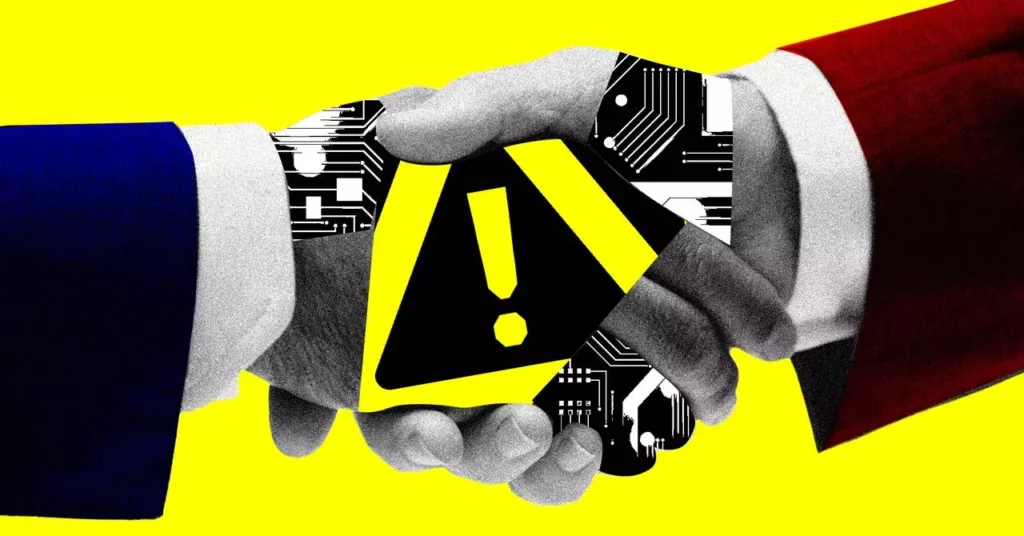In today’s fractured geopolitical landscape, where nations are often pitted against one another in a relentless race for technological supremacy, Singapore’s recent initiative on artificial intelligence (AI) safety emerges as an exceptional beacon of hope. This comprehensive blueprint not only emphasizes the importance of international collaboration but also presents a striking contrast to the prevailing competitive mindset that defines international relationships today. With influential AI researchers from the United States, China, and Europe collaborating under a Singaporean umbrella, this initiative is not merely a bureaucratic exercise; it is a serious step towards reframing how nations interact in the domain of cutting-edge technology.
By addressing concerns surrounding AI not just as national assets but as shared human responsibilities, Singapore’s initiative cultivates an atmosphere in which collective wisdom trumps isolationist tendencies. MIT’s Max Tegmark’s insights into Singapore’s recognition of its role in the broader conversation about AI couldn’t be more timely. He observes that the city-state understands it isn’t the powerhouse behind artificial general intelligence (AGI) but plays a crucial mediative role. This level of pragmatism is indispensable as we confront one of the most defining challenges of our time.
The Risk of Competitive Isolation
The competitive landscape of AI, particularly with rising powers like China and established ones like the U.S., risks making AI development a zero-sum game—where one nation’s gain is necessarily another’s loss. In a recent speech that underscored this sentiment, former President Trump lamented China’s lead in AI, raising alarms over American industries. The notion that nations should focus on outdoing each other instead of collaborating could lead to disastrous consequences for humanity’s future. In a sphere as influential and unpredictable as AI, allowing national pride to overshadow communal risks could very well be our collective downfall.
The Singapore Consensus confronts this problematic mindset head-on by advocating for shared responsibilities in three main areas: understanding the risks of advanced AI systems, innovating safer methodologies, and creating robust frameworks for system control. The urgency in these discussions cannot be overstated; as AI technologies evolve, so do their complexities and potential risks, demanding an unprecedented level of collaboration, not just amongst allies but also with potential rivals.
Bridging Academic Insight and Practical Application
The groundbreaking summit that birthed the Singapore Consensus saw luminaries from various prestigious organizations such as OpenAI and Google DeepMind convening to discuss these pressing issues. The blending of academic insights with industry practices adds depth to the discussions, demonstrating that the brains behind AI are not just theorists but engaged practitioners keenly aware of the moral implications their creations entail.
This multidisciplinary approach is vital to understanding the ethical dilemmas AI presents. As researchers grapple with critical concerns about bias, manipulation, and autonomy, the initiative forces us to ask vital questions: How do we ensure AI serves the greater good? What frameworks can guide developers in creating technology that actively minimizes harm? This focus on ethical applicability invites collaboration between technologists and ethicists, a nexus that is crucial for responsible AI innovation.
A Collective Responsibility Against Existential Threats
While skepticism towards AI, particularly from groups labeling themselves “AI doomers,” might seem alarmist, such caution warrants our attention. Their calls for ethical frameworks highlight the urgent need to address not just the computational challenges posed by AI but the looming ethical crises we face as these technologies pervade our lives. It underlines the harsh reality that the stakes are not merely operational but existential—AI systems could, if not guided properly, become destructive forces.
The very essence of the Singapore Consensus lies in its recognition of this shared existential threat, urging nations to pool knowledge and resources effectively. The framework outlined in this initiative signals a clear and pressing need for conscientious efforts to mitigate potential abuses of AI while also tapping into its transformative capacities for good. Such proposals may very well serve as the foundation for establishing meaningful international standards that will govern AI practices.
Accelerating Towards a Safer Future
In the absence of a coherent international framework, AI technologies could spiral out of control, posing threats that affect all of humanity. But through initiatives like the Singapore Consensus, the possibility of navigating our way toward a safer and more equitable technological future emerges. The collective efforts showcased in Singapore’s initiative exemplify a world shifting towards cooperation, suggesting that even in a time rife with discord, there remains hope for a united approach to one of humanity’s most powerful tools.
As we stand at this crossroads, enacting cooperative frameworks is not simply an option—it’s an imperative. The stakes are immeasurable, and dismissing the value of international cooperation in addressing AI risks could lead to ramifications we are not yet equipped to handle. Time may be running out, but the path towards collective action is more attainable than ever, urging us to act decisively and collaboratively.









Leave a Reply